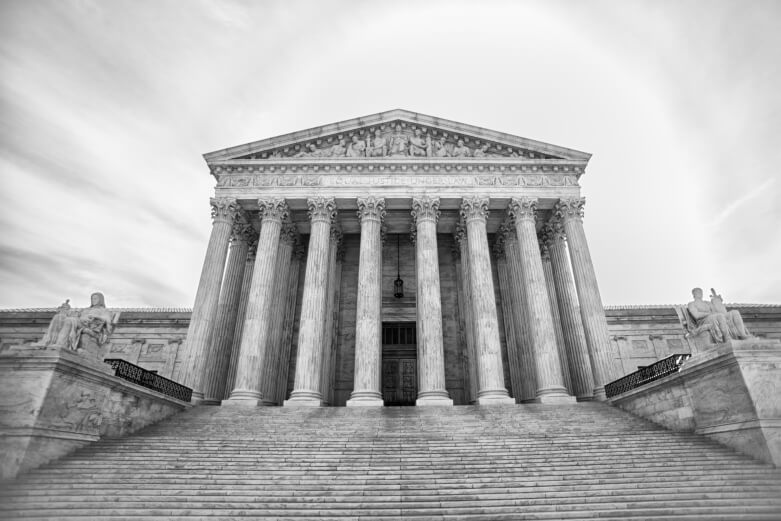ACLU Defends Constitutional Right to a Meaningful Criminal Defense
Page Media

In 1961, Clarence Earl Gideon was accused of stealing some bottles of beer and $ 5 in vending machine coins from a pool hall. At his trial, the Florida judge refused Gideon’s request for court appointed legal counsel. Since he couldn’t afford an attorney, Gideon had to defend himself as best he could. He was convicted and sentenced to five years in prison.
While incarcerated, Gideon sent a handwritten petition to the U.S. Supreme Court, arguing that the judge had violated his right to a fair trial by denying him an attorney.
In a 1963 landmark case, Gideon v. Wainwright, the high court found that the constitution guarantees anyone accused of a felony the right to a defense attorney. If they are indigent, the state must appoint one for them at public expense. The ACLU supported Gideon’s lawsuit. The federal law was later expanded to cover misdemeanors with the potential for jail time and juvenile cases.
And yet 60 years later, millions of people struggle to access the right to counsel to which they are constitutionally entitled.
Our ACLU of Northern California criminal justice team has been working on indigent defense for the past decade, filing a major case in 2015 against Fresno County and the State of California. As a result of a 2020 settlement, Governor Gavin Newsom agreed to designate $10 million for a grant program for indigent defense. It was the first time the state had provided money specifically for local public defender programs. And it paved the way for a three-year pilot program that earmarked $50 million annually to help people get resentenced and released from prison under recently passed post-conviction reforms.
Since then, we have dug even deeper and documented a shocking fact. Across the state, people are routinely pleading guilty to criminal charges – without ever having consulted with an attorney. Many times these uncounseled pleas have severe immigration and other collateral consequences. This is happening even though, 80 percent of those arrested are eligible for a free court appointed public defender.
“There’s been a lack of resources for public defender offices and a lack of political will to enforce the law,” said Mica Doctoroff, a staff attorney for the criminal justice program at the ACLU of Northern California. “What we’re trying to do is make sure that the constitutional right to counsel is enforced the way the law intended, and that people are able to access that right.”
GIDEON’S FAILED PROMISE
You’ve probably seen a TV crime show where the police officer recites the Miranda warning to someone they’re arresting. “You have the right to remain silent. You have the right to an attorney…if you cannot afford one, one will be provided for you at no cost.”
The problem is, California isn’t doing nearly enough to guarantee this much-celebrated right to an attorney.
State officials have pushed that responsibility off onto local counties, which are then left largely to their own devices to fund and run indigent defense programs. Many public defender offices are swamped with cases and starved for resources. Some places farm out indigent defense cases to private attorneys on flat fee contracts.
Those who can’t afford a private lawyer, all of them low-income and many of them people of color and immigrants, often get steamrolled through quick prosecutions. Or, they languish in jail in pre-trial purgatory.
Say someone who can’t afford a lawyer shows up in court to enter a plea. The district attorney or probation officer may inform them that there is a plea offer on the table, if they plead guilty or no contest they can settle their case right away, but if they refuse and ask for an attorney, the deal might disappear. Defendants who have been locked up in jail since their arrest because they can’t afford bail are understandably desperate to get out. Other people can’t afford to take time off work to return to court in the hopes of getting an attorney.
We’ve also documented instances where immigrants were pressured into pleading guilty – without being told it could hurt their immigration cases.
That’s coercion. And we won’t stand for it.
FIXING A BROKEN SYSTEM
It’s time for California to finally put teeth into the right-to-counsel law. We call on the legislature to create statewide protection for indigent defendants that guarantees them court-appointed legal counsel – before their arraignment. This would be a significant step toward meaningful representation for everyone – regardless of financial means.
The ACLU of Northern California and our sister affiliates have filed lawsuits across the country to compel states to pay more than lip service to people’s Sixth Amendment rights.
As a result of an ACLU class action suit in Missouri, a judge ruled in February that indigent defendants facing imprisonment must be represented by a public defender no later than two weeks after their financial qualification has been approved. Thousands of people have been on waiting lists for a public defender – another clear violation of the intent of Gideon.
Here in California and across the United States, the ACLU will continue to hold states accountable for investing in public defense systems that provide meaningful representation to low-income defendants.
It is shameful that six decades later, we are still waiting for Gideon’s promise to be fulfilled.
